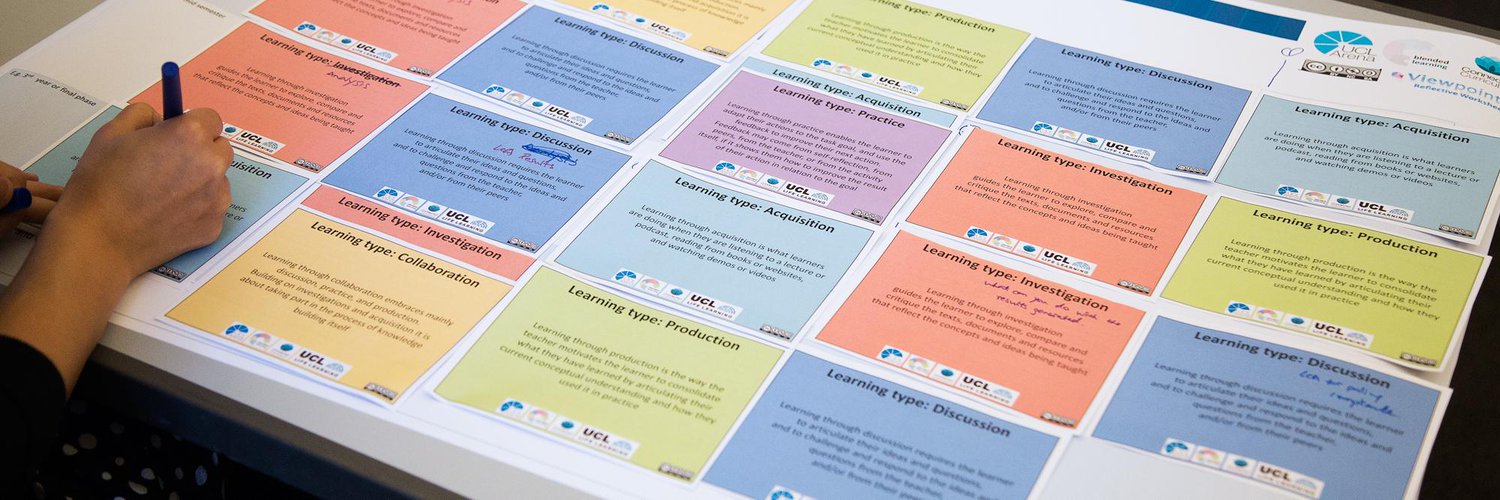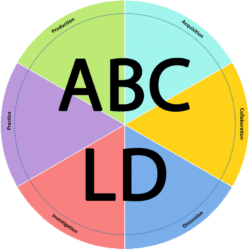It seems safe to state that there are challenges in learning design that almost all institutions face: limited staff time, a modular focus, and a tendency towards ‘lone ranger’ thinking to name just some of the potential barriers to successful course design. These types of challenges have significantly influenced the team-based ABC methodology developed originally by Clive Young and Nataša Perović of University College London (UCL) which continues to grow in popular use worldwide as a model for blended learning design.
Dublin City University (DCU) Teaching Enhancement Unit is currently engaged in the ABC to VLE Erasmus+ funded project to further develop the ABC Learning Design methodology. As relative newcomers to ABC (DCU first experienced it in 2017), this project has been a great opportunity to apply the approach and benefit from the experience of UCL and the 11 other European partners involved. For those not familiar with the format, ABC offers a rapid-fire, hands-on workshop approach where in just 90 minutes academic teams work together to design or redesign modules and programmes. By the end of the process, teams have discussed, debated, and discovered a range of potential activities and technologies, communicated their overall vision of their course, and ultimately created a storyboard of an intended learning experience. Not bad work in under two hours, especially when it all goes according to plan.
The overall goal of this particular European project is to develop ABC as a downloadable toolkit that can be used and adapted by any institution. At DCU we have adapted the ‘classic’ materials to suit important strategic priorities such as flexible learning modes, enhanced feedback mechanisms, and Universal Design for Learning (UDL). Furthermore, by using the approach with several teams, evaluating it, and learning how different aspects perform on the ground, we hope to continue to develop our own expertise in using the approach in different contexts. We also plan to do our bit to promote conversations amongst the Irish learning design community about using and tailoring the method to optimum effect.
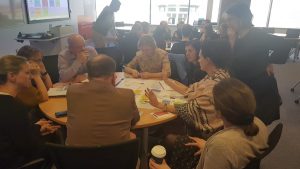
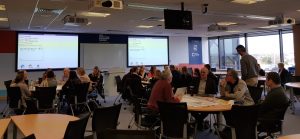
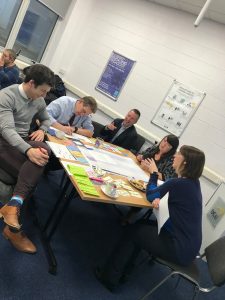
What has been learned along the way?
We have not quite reached the halfway point of the project so this is by no means a definitive evaluation. However there have certainly been several lessons learned to date and from our perspective thus far it appears that:
- The 90-120 minutes timeframe is a good ‘in’ for potential participants and seems to be a period of time that can be scheduled without as much difficulty as full or half-day blocks. Quite a lot can be done to develop a vision for a course within 90 minutes and it is very clear that the collaboration and conversation raises questions and ideas that would not come up were people to approach this as individuals.
- A ‘pre ABC’ workshop is necessary (perhaps even mandatory) to enable teams to consider programme and module learning outcomes and help them prepare their thinking for the 90 minute workshop. Without an adequate preparatory phase, teams risk feeling unprepared for the various workshop activities and consequently may find it harder to deeply engage. This is particularly true for teams who have not yet entered the validation process.
- Facilitating ABC workshops is challenging! Keeping to the tight timings while playing an active and critical role in the design conversations is not easy and the advice to have at least two facilitators for every session held true for us.
- Access to follow-on workshops and supports is vital: The action plan formulated at the end of the workshop highlights areas that need to be followed up afterwards, such as further technology-specific training. Additional just-in-time supports and guidance are necessary to help educators implement proposed designs back in the ‘real’ post-workshop world.
What is happening next?
By September 2020, DCU plan to have released several outputs and we hope to continue to develop our expertise in the methodology over the course of the project. For example, we are currently working with a number of programme teams to develop case studies about how ABC has been localised and implemented at DCU. Initial versions of two case studies will be published on this site over the Summer. We are also creating a range of technology supports to ensure that those creative designs talked about during the workshop eventually become a reality. For example, a customisable ‘ABC to VLE App Wheel’ is being developed to provide access to practical guidance and videos on potential educational technologies within and beyond the VLE.
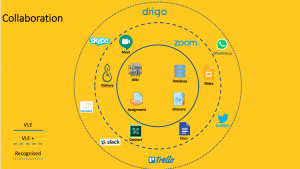
But it’s definitely not just about DCU: given the scale of interest in discussions with internal and external parties, the project leads are very keen to establish an ABC-oriented Special Interest Group in Ireland so that anyone using the method can learn from the experiences of others. You can expect to hear more about this in September but if this sounds up your street, you can take it that the format will be webinar based (for maximum inclusivity) and it will be more of a swap shop than a talk shop. In other words a core goal of this group will be to swap experiences and highlight tips and ideas that might be useful for others to take on board. So if you’re interested in taking part, keep in touch with clare.gormley@dcu.ie and we will keep you posted.
DCU Project Leads: Clare Gormley and Mark Glynn, DCU Teaching Enhancement Unit
